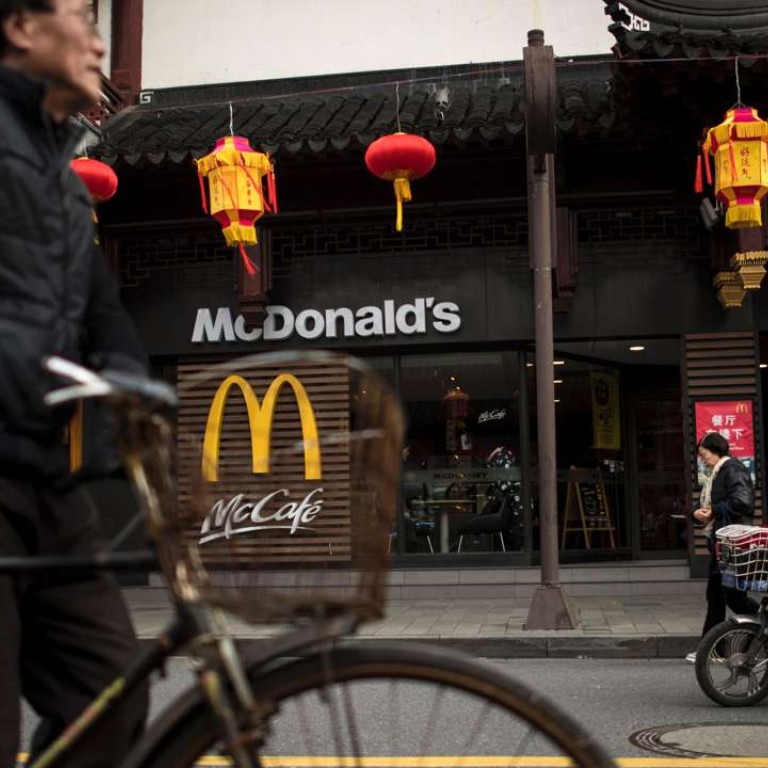
Nothing to love about McDonald’s China deal with Citic, Carlyle
The acquisition of the McDonald’s China franchise by Citic and Carlyle will open up a series of business conflicts.
Customers and employees will not be “Lovin’ It”.
Recently, McDonald’s took the unusual decision of selling an 80 per cent stake in its China operation (including Hong Kong) to a private equity group comprising Citic Ltd, a Chinese state-owned enterprise, and the US private equity manager Carlyle Group. The transaction values the entire business at about US$2.08 billion and is for a 20 year term.
At the end of 2016, McDonald’s operated more than 2,400 outlets in mainland China and more than 240 in Hong Kong.
Approximately one-third of the China stores are already run as franchises. The remaining stores would be franchised under the buyout and McDonald’s will retain a 20 per cent interest in the new holding company.
After decades of owning and managing its outlets, McDonald’s and other major fast food chains are moving to what consultants call an “asset light” management structure.
Recognising that the global fast food business is more about maximising brand management revenues and streamlining the business than running stores, it makes economic sense to optimise value by separating a big geographical unit such as China.
Yum! Brands (the owner of KFC, among others) accomplished that by avoiding private equity and spinning off Yum! China from its US operations in a 2016 public listing along with an independent management team.
Although McDonald’s has successfully operated in China since 1990 and longer in Hong Kong, Japan and Taiwan, it chose to sell to private equity instead of straight to an IPO.
A private equity deal is a failed approach to solve their operational burden.
A restrictive, two year term ensures that areas such as supplier relationships won’t be altered, so radical management changes won’t be possible.
McDonald’s pays out 6 per cent royalties (compared to 3 per cent for Yum! Brands), so ensuring stability in the early years of a franchise transfer is important.
However, PE funds will eventually make major management and operational changes to extract value. This includes stripping as much costs as possible and maximising profit for an IPO in three to five years.
PE managers like Citic and Carlyle are specialist financial investors. They bring little management skill to an established fast food operator.
By not going public right away perhaps McDonald’s thinks they will achieve more IPO value with a private equity partnership. But, as financiers, their greatest skill set is timing the entry and exit of an investment, not operations.
It is likely that the new owners will fire McDonald China’s expensive senior executives and renegotiate supply chain deals, according to a source familiar with the matter. This is key to making significant cost savings.
According to experts, McDonald’s has not traditionally squeezed its suppliers on costs until it builds enough stores. Its supplier relationships are actually structured as loose partnerships.
So I expect a management clash, which will hurt productivity and quality, resulting in damage to the brand and stagnation in its growth .
Cutting costs is not a winning formula for expanding big brands, which demand reinvestment. The new organisation could quickly turn into a management mess characterised by turmoil.
Between resolving supply contracts based on handshakes and a shakeup of McDonald’s senior executives, who will run the company?

The fast food giant was taken private in 2002 by three buyout firms: TPG Capital, Bain Capital and Goldman Sach’s private equity unit. Then, it listed again in 2006, but underperformed McDonald’s in the stock market.
In 2010 Burger King was sold to another investment firm, 3G Capital, for US$4 billion.
Li Su, head of Hejun Vanguard, a China brand consultant, observed that “McDonald’s previously focused on a direct operating model and supplemented it with franchisee stores, but this has resulted in an over expansion in big cities while it remains almost absent in tier 3 and 4 cities. “
The result is “a deteriorating market share in comparison to other fast food chains such as KFC,” he said.
He believes that pressures in the transformation from a direct operating to master franchisee model are likely to affect consumers in terms of pricing.
PE firms are primarily financially motivated and see operations only through financial returns. If the local management team is not used to running their own business it will be hard to change or reform business practices.
Lovin’ Beats Hatin’” may be McDonald’s new slogan, but there is nothing in this deal to love.
Peter Guy is a financial writer and former international banker

